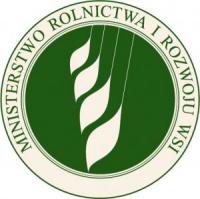Biocoal – Polish low emission fuel
27 January 2015, 11:00-14:00 hrs
Venue: Conference Hall no. 49/51, Ministry of Agriculture and Rural Development,
ul. Wspólna 30, Warsaw
Please register for the event HERE
In view of the current direction of the EU climate policy, the role of coal in Poland’s National Power System may change. Poland as an EU member state is a participant of the Community market of carbon dioxide emission allowances EU ETS (CO2) and has to meet its climate policy targets in the non-ETS area. This requires us to more effectively manage our natural resources (coal) and to develop the low-emission energy sector (renewable energy sources and cogeneration).
One of the solutions supporting the implementation of both national and EU energy policies is distributed energy which contributes to carbon dioxide emissions reduction. An indisputable added value of distributed energy generation is independence, to a certain degree, of grid electricity supplies whose disturbances may bring about a significant reduction in household life comfort, as well as problems with carrying out production operations e.g. in agriculture. In terms of environmental protection, the most efficient distributed energy sources are renewable sources, in particular household photovoltaic systems and wind turbines. Yet, due to their characteristics, these solutions are not fit for use as autonomous power sources as there is no possibility to programme their work (which depends on weather conditions such as wind power and insolation). A solution which can eliminate the problem of instability is highly efficient cogeneration systems. In such systems, the most widely used fuel is gas. At the Community level it is considered a low-carbon fuel, but given the current political situation and the absence of sufficient gas resources in our country, the development of an alternative solution should be sought; this would provide a predictable and stable system using a fuel based on domestically produced resources.
Taking into account the Polish conditions, a strongly pro-environmental and economically efficient alternative to gas-based fuels dedicated for use in cogeneration seems to be a fuel consisting of low-quality coal (fine hard coal, fine brown coal) the demand for which, on the side of the traditional power sector, is constantly decreasing, and biomass waste (e.g. straw) or an agricultural activity-based product (e.g. Miscanthus plant). Notably, in many regions national coals are displaced from the market by coals coming from imports which can not be blocked.
In order to enable heat and electricity generation using such a composite fuel, the composite raw materials have first to be properly prepared to achieve similar combustion parameters.
The following persons have been invited to take part in the debate:
- Piotr Czopek, Renewable Energy Department, Ministry of Economy;
- Edward Słoma, Deputy Director, Department of Energy, Ministry of Economy;
- Dr. Eng. Leon Kurczabiński, Director of the Sales Strategy Department, Katowice Coal Holding SA;
- Prof. Jan Kiciński, Director of the Institute of Turbomachinery, Polish Academy of Sciences;
- Jarosław Wojtowicz, Vice-President, Agency for Restructuring and Modernisation of Agriculture;
- Dr Tomasz Dzik, AGH University of Science and Technology, Kraków, Faculty of Mechanical Engineering and Robotics, Production Systems Department;
- Prof. Krzysztof Żmijewski, Secretary General of the Public Board for Sustainable Energy Development
Representatives of the NSZZ „Solidarity” and Ministry of Agriculture and Rural Development.
Any additional information on the debate is available from Ms Barbara Gacia, e-mail: pr@proinwestycje.pl, tel. 609 250 800
PATRON OF HONOUR



